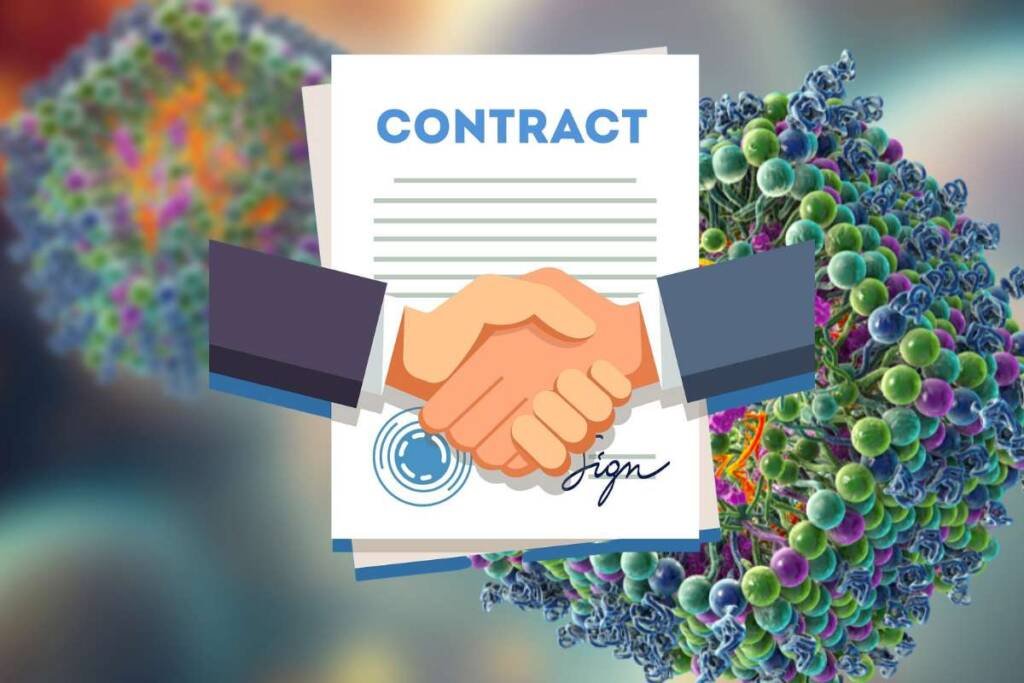Source – Novartis
On July 17, Novartis made an announcement regarding its recent acquisition of DTx Pharma, a biotechnology company based in San Diego. DTx Pharma specializes in preclinical stage research and focuses on utilizing its proprietary FALCON platform to develop siRNA therapies for neuroscience-related conditions.
DTx’s leading program, DTx-1252, aims to address the underlying cause of CMT1A, a subtype of Charcot-Marie Tooth disease that affects the peripheral nervous system. The program targets the overexpression of PMP22, a protein responsible for abnormal functioning of the myelin sheath that supports and insulates nerves. Recently, DTx-1252 was granted Orphan Drug Designation by the FDA. It decreases the expression of the protein in Schwann cells, which play a vital role in the development, maintenance, and function of peripheral nerves. The FALCON platform enhances this targeted approach by connecting siRNAs to naturally occurring fatty acids, improving their distribution and uptake by specific tissues and cell types.
CMT is a group of inherited disorders that affect the nervous system, with CMT1A being the most prevalent subtype, impacting approximately 150,000 patients in the United States and Europe. CMT1A is a degenerative disease of the peripheral nervous system, characterized by progressive muscle wasting, neuropathic pain, difficulty walking, and diminished quality of life. As of now, there are no approved treatments addressing the genetic cause of CMT1A, making DTx-1252 a potential groundbreaking therapy for the condition.
In addition to DTx-1252, the acquisition also provides Novartis with two other preclinical programs targeting neuroscience indications. This expands Novartis’ siRNA toolkit and builds upon their capabilities in xRNA, one of their technology platforms. The agreement highlights Novartis’ dedication to the field of neuroscience, which is one of their five core therapeutic areas, and demonstrates their commitment to developing innovative treatments for patients with neuromuscular disorders.
“We look forward to continuing the development of DTx’s therapeutic programs and bringing new hope to patients with neuromuscular and other neurological disorders for which there have historically been few treatment options. We are also excited to bring DTx’s FALCON technology to Novartis and explore its potential to deliver drugs to extrahepatic tissues.”
– Fiona Marshall, President of the Novartis Institutes for BioMedical Research (NIBR)
Under the terms of the agreement, Novartis will pay an upfront amount of USD 500 million to DTx Pharma, with additional payments based on the completion of specific milestones.
“The growing arsenal of therapeutic platforms available to us continues to enable the development of novel, high-value medicines—particularly in cases where the underlying biology of disease is well defined. We look forward to continuing the development of DTx’s potential first-in-class medicine for CMT1A and are hopeful we can bring a therapeutic option to patients living with this debilitating neuromuscular condition.”
– Robert Baloh, Global Head of Neuroscience for NIBR
It is important to note that this media update includes forward-looking statements that are subject to risks and uncertainties. These statements are based on Novartis’ current beliefs and expectations regarding future events. The actual results may differ materially from what is stated in these forward-looking statements due to various known and unknown risks and uncertainties. Novartis cannot guarantee the approval, marketing success, or commercial viability of any investigational or approved products resulting from the DTx-1252 program or the FALCON platform. Factors such as clinical trial results, regulatory actions, market conditions, and other variables can affect the outcome. Novartis is not obligated to update these forward-looking statements and advises against placing undue reliance on them. For a more comprehensive understanding, please refer to Novartis AG’s current Form 20-F filed with the US Securities and Exchange Commission.





























